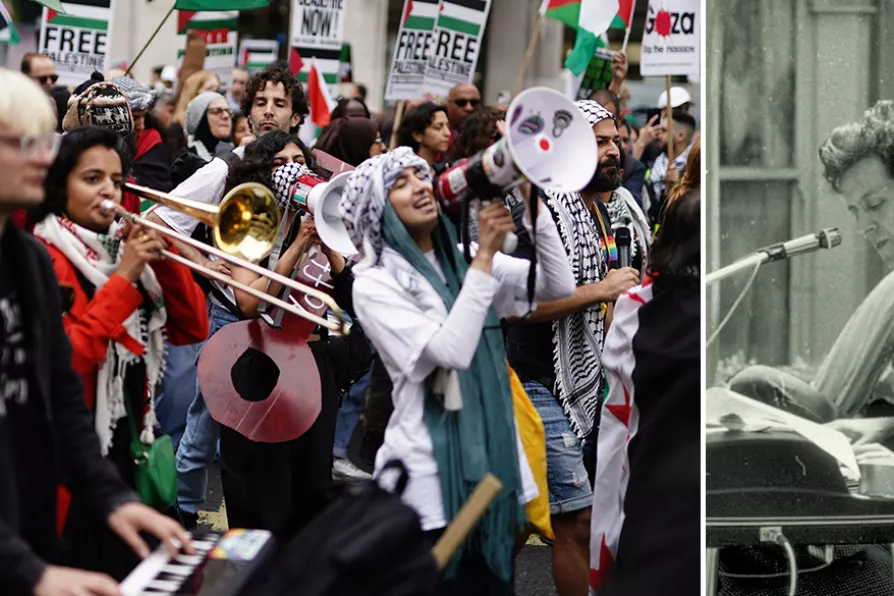Climate activist and writer JANE ROGERS introduces her new collection, Fire-ready, and examines the connection between life and fiction

 INSPIRATIONAL: (L) Musicians take part in a Nakba 76 pro-Palestine demonstration and march in London, May 2024, to mark the mass displacement of Palestinians in 1948, referred to as the Nakba; (R) Composer Cornelius Cardew in People's Liberation Music supporting the Grunwick march, July 1977
[AndyScott/CC]
INSPIRATIONAL: (L) Musicians take part in a Nakba 76 pro-Palestine demonstration and march in London, May 2024, to mark the mass displacement of Palestinians in 1948, referred to as the Nakba; (R) Composer Cornelius Cardew in People's Liberation Music supporting the Grunwick march, July 1977
[AndyScott/CC]
ON NOVEMBER 15 the Cornelius Cardew Concerts Trust (CCCT), an organisation dedicated to the music and ethos of Cornelius Cardew, a communist and experimental music composer, were due to host a solidarity concert in Morley College’s Holst Room. However, on the 14th one of the organisers announced on their personal Facebook that their event The World Stands with Palestine had been cancelled.
The organiser in question emphasised that the Trust had not chosen to cancel the concert. However, it came to light the organisation UK Lawyers for Israel (who offer services like “basic training for lawyers on international law and Israel” or “to contribute generally as lawyers to creating a supportive climate of opinion in the United Kingdom towards Israel”) had contacted both the CCCT and Morley College alleging that “holding the concert would be in breach of the law”. This led Morley College to cancel the concert. The CCCT have stated that “this is an outrageous allegation” and that the CCCT were determined not to be “intimidated by the browbeating of UK Lawyers for Israel.”
UKLFI was founded initially by Jonathan Turner and others as a counter to the Boycott, Divestment and Sanctions (BDS) campaign in 2011.

Despite declining to show Kneecap’s set, the BBC broadcast Bob Vylan leading a ‘death to the IDF’ chant — and the resulting outrage has only amplified the very message the Establishment wanted silenced, writes LINDA PENTZ GUNTER

BEN LUNN alerts us to the creeping return of philanthropy and private patronage, and suggests alternative paths to explore












